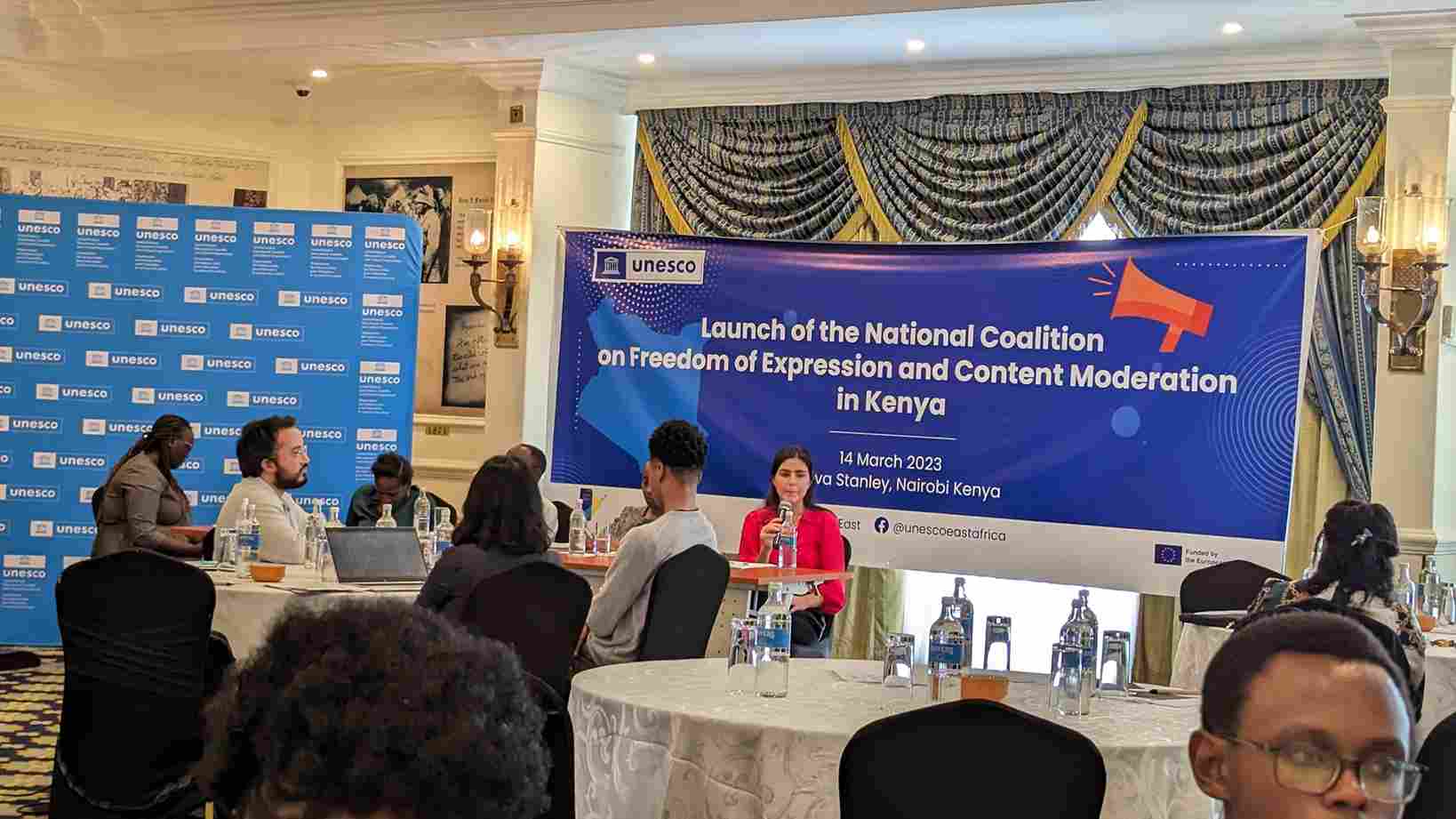The United Nations Educational, Scientific, and Cultural Organization (UNESCO) and Article 19 East Africa launched Kenya’s National Coalition on Freedom of Expression and content moderation.
This is an initiative that KICTANet is among the coalition members that aims to promote and protect freedom of expression on social media platforms in Kenya. At the same time, ensuring content moderation is done fairly and transparently.
The coalition is part of the Social Media 4Peace project, whose objective is to strengthen societies’ resilience to potentially harmful online content, particularly hate speech, inciting violence while protecting freedom of expression and enhancing the promotion of peace through digital technologies.
The Social Media 4Peace project is piloted in Bosnia, Herzegovina, Columbia, Indonesia and Kenya.
The coalition will focus on key areas in Kenya: policy and legal reform, capacity building, research and advocacy.
During its launch in Nairobi, the formation of the coalition was lauded by Ms Katrin Hagemann, Deputy Head of the European Union Delegation in Kenya and Prof Hubert Gijzen, Regional Representative and Director, UNESCO.
Ms Katrin noted that so much is happening on social media nowadays and a need to use the platforms responsibly.
“We all know suffering from the disinformation that’s going around and finding ways that we can use this to that social media allows for a while, while at the same time finding ways that we can use them responsibly is essential. I’m really happy to see this launch to look at how we can balance the essential freedom of expression and freedom of speech and at the same time, find a way to ensure that there is factual and correct representation,” she emphasised.
Professor Hubert said that while social media has empowered people to communicate, truth has been dangerously devalued due to hate speech.
He advocated for a multistakeholder national coalition to help bridge the gap between internet companies, regulators, and civil society organizations.
“Now, as we all know, social media and other digital platforms have indeed empowered people worldwide to communicate, share information and transform their societies,” noted Professor Hubert.
“So while on the one hand, they have opened up spaces for more people to share their opinions and ideas, promoting freedom of expression and access to information. But on the other hand, we have also seen that business models have created structural incentives to spread disinformation and hate speech.”
“If we continue to tolerate social media algorithms, which reward effects lies, then future generations might inherit a world in which the truths and the dangerously devalued without facts. You can’t have the truth without truth. We have no shared reality. Without truth. We can’t have trust.”
Content Moderation and Local Stakeholders in Kenya study by ARTICLE 19, which was conducted as part of the UNESCO EU-funded project, Social Media 4 Peace, show that as social media use increases, tackling the spread of disinformation and misinformation, hate speech, online gender-based violence content, and malicious, coordinated, and inauthentic behaviour remain key challenges not just for the platforms but for everyone.
The study suggests that social media companies can improve their content moderation systems by engaging with stakeholders and understanding the local context. This approach can help moderate inappropriate content that negatively impacts Kenyan society, making social media a public good and a platform for a peaceful and democratic society.
David Indeje is KICTANet’s Communications Officer.
![]()




